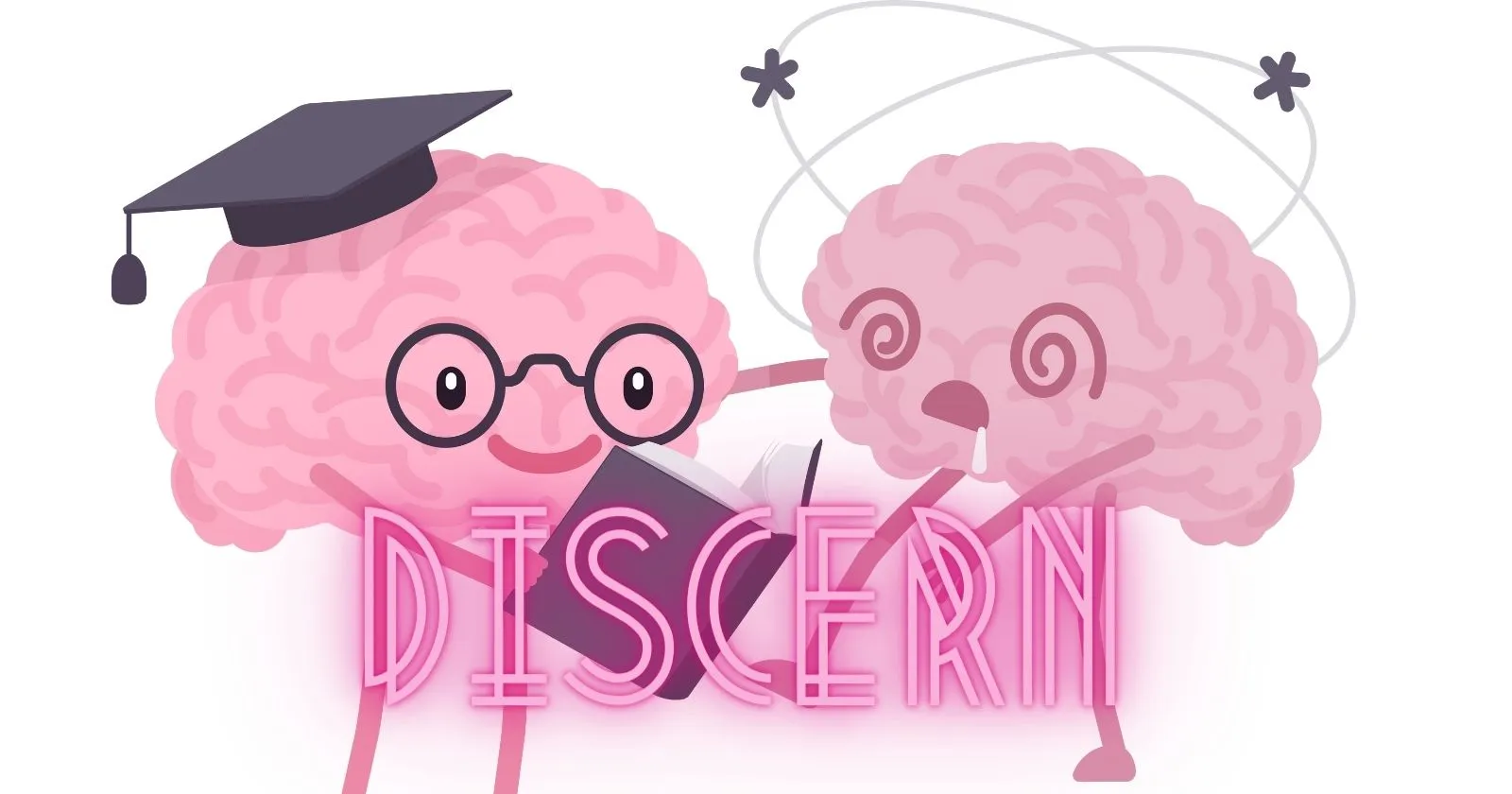Discern Meaning full Information: We explain what discernment means, the origin of the term and its moral meaning. Furthermore, its relationship with the ability to understand.
Before entering fully into the definition of the term discern, we are going to know its etymological origin. In this case, we can establish that it is a word that derives from Latin, exactly from the verb “discernere”, which can be translated as “to distinguish” and that is the result of the sum of two delimited components:
- The prefix “dis-”, which is used to indicate “divergence”.
- The verb “cernere”, which is synonymous with “distinguish”.
Define Discern
The verb discern refers to distinguishing or noticing something. To achieve this distinction, it is necessary to discover or determine those qualities that differentiate the element in question.
Therefore, among the synonyms of the verb in question there are also understand, appreciate, comprehend, judge or appreciate. On the contrary, regarding antonyms we have to highlight some such as ignore, confuse or even confuse.
For example: “Sometimes it is difficult to discern the divine will, but you must never lose faith”, “You are already grown up, you should discern between what is good and what is wrong”, “The teacher taught us to discern situations risk and explained to us how to act in an emergency.”
What is Discernment?
When we talk about discerning, or discernment, we are referring to the ability to differentiate things from each other, that is, to distinguish something from the rest, or even to appreciate what is good and what is bad. When we go to a judge, an authority or a specialist, we count on their specific training to allow them to discern what the solution to our problem is, that is, what is the ideal way to solve it.
This word comes from the Latin word discernere, composed of dis- (“by different means”) and cernere (“to sift”, “to separate”), so that from its origins it implies the concept of choice, of identifying (and therefore separate) the parts of something.
Hence, both religious and philosophical traditions of the West have proposed different models and/or procedures to be able to discern good from evil, what is real from what is false, etc.
Must Read:- Epiphany | Theory | Stereotype
The concept of discernment, thus, is traditionally related to understanding: in order to distinguish the parts of something, it is necessary to first understand it; and also with knowledge: those who know more about something, have a greater ability to differentiate its elements.
This becomes quite evident when we use the verb discern as a synonym for see: in the phrase “there is so much smoke that I cannot discern who I am talking to”, we are equating it with seeing, identifying or recognizing, and therefore also with knowing and understanding.
In the Western cultural tradition, it is common to equate the concepts of vision and understanding: hence, to refer to someone who is not very intelligent, we say that “he is dim-witted” or, also, that “he does not have much discernment.”
Application of personal criteria
Generally, the action of discernment is linked to making a moral judgment or assessment. Discernment, in this sense, is the criterion that an individual has to differentiate between various elements, analyzing what their effects are and how they interact with each other.
A person who is honest and aware of his actions, therefore, manages to discern between good actions and bad actions. Suppose a man drives to a party in his car. Upon arriving at the place, the host invites you to drink alcohol. The subject knows that he will have to drive to get back to his house and that, if he drinks alcohol, his reflexes will be affected and therefore could cause an accident. In short, the individual would have to discern that accepting the drink poses a potential danger to him or her and to third parties.
The idea of discernment can also be applied to recognizing the appropriate time to do or not do something. A young man who is fired from his job goes to visit his father and finds that his father is not feeling well and has high blood pressure. The boy, faced with this scenario, discerns that it is not logical to tell her the bad news at that moment since it could increase his father’s discomfort.
Discern in religion
Within the religious sphere, the term in question is also used. Specifically, it talks about discerning the body of Christ. This expression is usually used to indicate that he is not being baptized.
This meaning is taken from the moment when the apostle Saint Paul, when giving instructions on how to administer the Lord’s Supper, determined that before drinking the wine or eating the bread the body of Christ must be discerned.
However, within this area, there is also the theory that this expression refers to something else. Specifically, to make a mistake with the Church, to not understand that this is a holy entity and not an association or a simple club. Those who support this theory defend that the body of Christ is the Church and that any attack against it is also against Jesus Christ.
